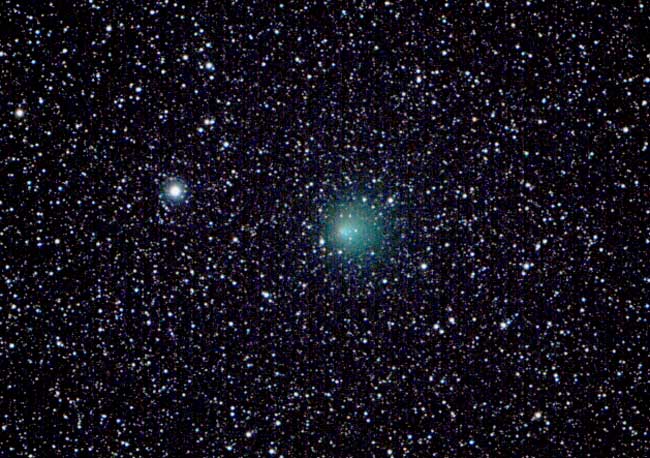
|
Credit & Copyright: Michael Holloway
Explanation:
It's back.
Every 3.3 years,
Comet Encke swoops back into our inner
Solar System.
First officially discovered in 1786, Comet
Encke is on its 59 th documented return,
making it one of the best-studied
comets on the sky.
Mysteriously, Comet Encke should have been discovered millennia earlier,
since it likely became bright enough to see unaided many
times over the past few thousand years.
Comet Encke's elliptical trajectory reaches from outside the orbit of
Mars to inside the orbit of
Mercury.
It passed relatively close to the
Earth on Nov. 17 and will reach its closest to the Sun on Dec 29.
Recent observations place Comet Encke as bright as
visual magnitude six during early December,
making it just on the verge of unaided
human vision.
Pictured above, the diffuse smudge of periodic
Comet Encke was imaged through a small telescope on November 29 from
Arkansas,
USA.
|
January February March April May June July August September October November December |
| ||||||||||||||||||||||||||||||||||||||||||||||||
NASA Web Site Statements, Warnings, and Disclaimers
NASA Official: Jay Norris. Specific rights apply.
A service of: LHEA at NASA / GSFC
& Michigan Tech. U.
Based on Astronomy Picture
Of the Day
Publications with keywords: comet Encke
Publications with words: comet Encke
See also:
